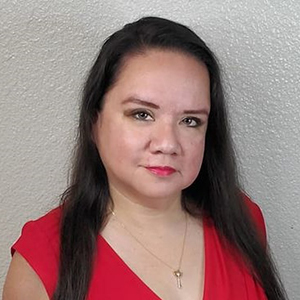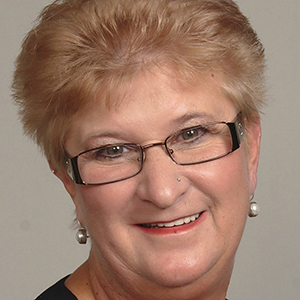

Written and reported by:
Catherine Ryan Gregory
Contributing Writer
When you need medical care, nurses, doctors, chiropractors, or other providers are ready to set a broken bone or vaccinate your kids. In order to practice, though, these providers rely on medical billers and coders to ensure treatments are paid for.
Workers in these important roles ensure providers are reimbursed for their services. Medical billing and coding are popular careers in part because you can begin work quickly without years of higher education.
Many people don’t realize that medical billing and coding are actually two different jobs. A coder “translates a provider’s documentation into specific codes for insurance purposes,” says Bleu Garcia, CCS-P, a hospital outpatient clinic coder for the orthopedics and podiatry specialties. A biller processes those codes with payers—insurance companies as well as patients. Some jobs combine the two roles.
“This is not just a job; it’s a fulfilling career,” Garcia says. “It doesn’t get boring, and it will continue to pay you back in satisfaction.”
While medical billing and coding are different careers, they’re often talked about in the same breath. Both jobs are tied to a healthcare organization’s revenue cycle and how providers are paid for their care. Their roles and responsibilities differ, though.
A medical coder reads notes and documentation about a patient’s diagnosis, treatment, or procedures, and then translates that care into standardized codes. These codes are nuanced and specific. For example, the appropriate code for a broken wrist will take into account which wrist was injured, what kind of fracture it was, and which bone was damaged.
Medical billers use these codes to secure proper reimbursement. They work with insurance companies, other payers such as Medicare and Medicaid, and patients themselves. This work often requires back-and-forth communication.
“Choosing and processing the appropriate codes affect healthcare facilities as a whole,” Garcia says. “If you commit errors, problems happen on the reimbursement side.”
Medical billers submit claims that include a procedure or service’s corresponding codes. Medical insurance companies process the claims and reimburse providers according to a patient’s plan or coverage. Billers often correspond with insurance companies and patients to ensure providers can continue offering care.
Correct coding and billing impacts patients, too. Garcia says that accurate coding can mean the difference between a minimal copay and patients footing an entire bill.
No, you do not need a postsecondary degree to work as a medical biller or coder—though a degree can help pave the way to some positions.
Medical billers often do not require higher education or training; in many cases, healthcare organizations provide necessary training on the job. Some people begin work as billers, work on a certification or degree in the meantime, and then transition to another healthcare job.
Medical coders with a degree can earn one of two designations: registered health information technician (RHIT) with an associate degree, or registered health information administrator (RHIA) with a bachelor’s degree. These designations require coders to pass a rigorous exam in addition to graduating from a medical coder program.
“You’ll likely need a higher degree if you want to be in a supervisory, educator, or managerial role,” Garcia says. “Otherwise, start with a medical coding certificate,” or begin work as a medical biller, without investing the years needed for a higher degree.
“It can be challenging to get a job because many employers want already trained coders and billers. That can make it hard to get that first position to gain experience,” Garcia says.
Medical billing requires fewer specialized skills and can have fewer barriers to begin a career, she adds. You can leverage experience working in an entry-level billing position to show other employers you are familiar with the billing and coding process. You can also begin in medical records, transcriptions, or prior authorizations to get your foot in the door, then transition to another position.
Like in many fields, the competition for openings can be fierce. “Sometimes people get discouraged when applying for jobs, but it all depends on how persistent you are,” Garcia says. Don’t give up!
It takes dedication, attention to detail, and excellent communication to succeed as a medical biller or coder. “There is a big misconception that this field is easy: that they can just punch codes into a computer and things will be good,” says Nancy Szwydek, MPH, RN, RHIA, CRAT, CMAC, who is assistant dean for accreditation at Purdue University Global. “It requires a lot of work and practice.”
Medical billers and coders also need to be self-motivated learners. “Codes change every year, and you need to be resourceful to answer your questions on the job,” Garcia says.
Medical billing and coding are crucial for a healthcare facility’s revenue cycle. In other words, billing and coding is what gets providers paid.
It makes sense, then, that medical billers and coders can make a solid wage—especially considering that you do not need an advanced degree to enter the field.
Medical billers and coders are included in the category of medical records and health information specialists, who earn a median salary of $48,780, according to the U.S. Bureau of Labor Statistics. Income varies according to many factors, including location, certifications, responsibilities, and more. Medical billers’ pay is generally lower than coders’.
Medical billing and coding certifications are not technically required to work in the field, “but to work in most reputable organizations, you have to be certified,” Garcia says. There tends to be more wiggle room for working as a biller, rather than a coder, without certification.
Two organizations grant certification for medical billers and coders. The American Academy of Professional Coders (AAPC) offers certification in medical billing, medical coding, compliance, auditing, and more specialties. The American Health Information Management Association (AHIMA) offers certifications for coding and niche subjects.
Requirements for certifications vary. Some require you to have taken a program recognized by a certifying organization; others require different levels of work experience. A certification is only earned after you take, and pass, a standardized exam. “These tests are rigorous and tough,” Garcia says. “Certifications mean you know, understand, and can apply the fundamentals of the profession.”
As you progress through your career, you can earn advanced and specialty certifications, too.
In contrast to other healthcare careers (for example, becoming a nurse, doctor, or pharmacist), medical billers and coders can complete coursework relatively quickly. Certificate and diploma programs can be completed in as little as nine months to a year.
An associate degree typically takes two years; a bachelor’s usually requires four. Degree programs go more in-depth into billing and coding topics, plus other general education subjects.
No matter which type of medical billing and coding education you pursue, ensure that the program is accredited and compatible with the certification you want to earn.
Yes, many medical billing and coding programs offer online courses. These options can help make a career change more attainable for people who are unable to commit to a traditional education schedule.
With options for live and on-demand instruction along with flexibility to take courses when you’re able, it can be considerably easier to get trained if you have job, caregiving, or other responsibilities.
As with in-person programs, ensure the online programs you consider are accredited and recognized by certifying organizations.
Yes, the medical billing and coding field offers a promising career. “Good medical coders and billers are always needed,” Garcia says.
Demographics and other trends are increasing the amount of healthcare people in the U.S. need. For example, as generations age, they tend to need more care, and chronic conditions require ongoing attention.
This means that the healthcare industry is growing. Hospitals, clinics, nursing homes, and other healthcare facilities need medical billers and coders to keep the revenue cycle running smoothly.
Computer-assisted coding software and electronic medical records are just two advances that have changed the jobs of medical billers and coders. These technologies can automate some tasks that billers and coders traditionally execute.
That said, “There’s still a need for medical billers and coders, regardless of strides in computer-assisted coding and electronic medical records,” Garcia says. She points out that a human still needs to double-check any automated billing and coding to ensure accuracy. Plus, “a computer is only as smart as you’re telling it to be. We still need billers and coders to reason out what is in the documentation.”
The bottom line: Technology and automation are changing the field, but healthcare organizations continue to hire medical billers and coders.

With professional insight from:
Bleu Garcia, CCS-P
Hospital Outpatient Clinic Coder

Nancy Szwydek, MPH, RN, RHIA, CRAT, CMAC
Assistant Dean for Accreditation, Purdue University Global
You may also enjoy:



